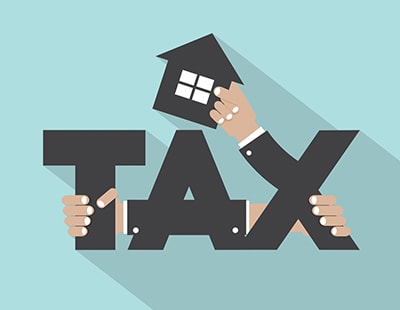
You may have to pay capital gains tax if you make a profit when you sell property that is not your primary home, such as a buy-to-let property, business premises, land and inherited property, but there are ways in which you could potential reduce the amount owed to the taxman.
Danny Cox, chartered financial planner at Hargreaves Lansdown, a leading provider of investment management and pension products and services to private investors and employers in the UK, offers the following top tips:
1) Use the annual exemption
A married couple (or those in a registered civil partnership) can make gains of £44,400 in this tax year and next without any charge to tax. Investments can normally be transferred between spouses without an immediate tax charge to make full use of two allowances. The annual exemption for capital gains tax cannot be carried forward or back into other tax years, and is therefore lost if not used.
2) Offset losses against gains
If an investment is sold at a loss, the loss must be offset against any gains made in the same tax year. If there are more losses than gains, the net losses can be carried forward indefinitely to set against future gains in excess of the annual exemption, provided those losses are registered with HMRC on the individual’s tax return.
3) Transferring assets before selling
Married couples (or those in a registered civil partnership) where one spouse pays tax at a lower rate than the other, may have the option to transfer investments into the other’s name before selling to lower the rate of capital gains tax paid.
4) Reduce taxable income
The rate of capital gains tax is now charged based on the rate of income tax paid. Therefore lowering taxable income in any one year could reduce the capital gains tax rate from 20% to 10%. Reducing taxable income can be done in a number of ways: waiting for retirement and a change from earnings to pension income; the strategic limiting of income withdrawals from a flexible access drawdown; deferring the state pension; greater use of ISA (income from ISA does not count towards taxable income calculation); or transferring taxable income bearing assets such as cash deposits to a lower earning spouse.
5) Never sell
Providing there is no disposal, gains and their liability to tax can be deferred indefinitely. Since capital gains tax is washed out on death, it is a tax which can be avoided altogether. This becomes especially useful for inheritance tax planning where the assets qualify for inheritance tax relief under Business Property Relief, e.g. a portfolio of qualifying AIM stock or unquoted companies held for two years or more.









.png)

.jpg)








Join the conversation
Jump to latest comment and add your reply
Please ask Mr Cox to explain how he arrives at a figure of £44400 for exempt gains - the correct figure is £22200 (2 x £11100).
In an article about property disposals I am amazed that no mention is made of the CGT rate of 28% which in my view is likely to apply in a large number of cases. Why is this?
Please login to comment